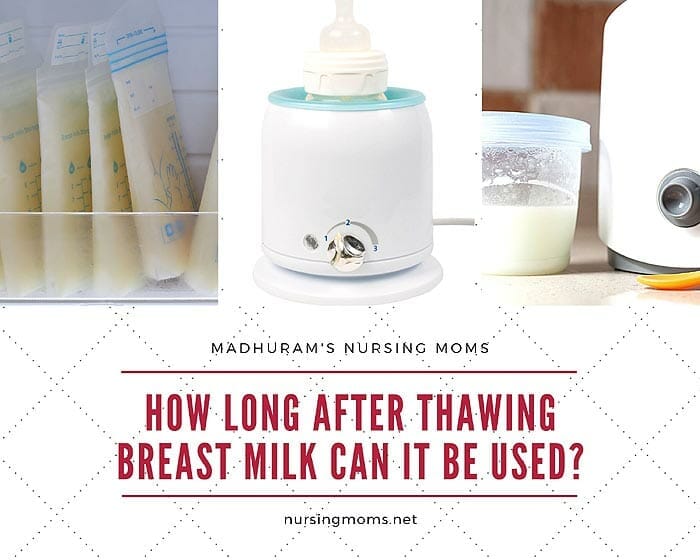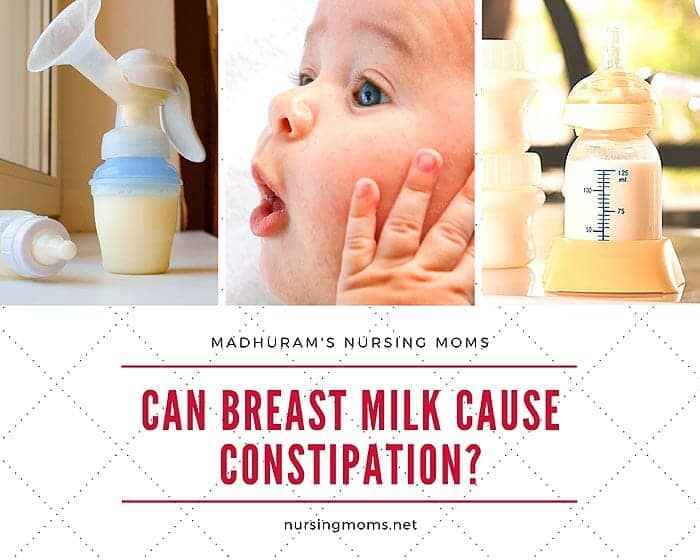
It is not uncommon for babies to aspirate breastmilk as they are getting used to the nursing process. Some will be at risk for this, even months into the nursing stage. But the important thing if that happens is to not panic. Understanding why the aspiration of breastmilk happens and how to act when it does is essential for your baby's health.
What to do if baby aspirated breast milk?

The main thing you can do if your baby aspires to breastmilk is to change the feeding position. Also, if your child is older, you will have to talk to your doctor about potential swallowing exercises. Finally, if the aspiration is severe rather than mild, don't hesitate to talk to the pediatrician and find out the best treatment for your child.
Suggested Reading:
![]()
What is aspiration in babies?

Aspiration in babies doesn't refer only to the aspiration of breastmilk.
- When food enters the airways instead of the mouth and gets into the lungs instead of the baby's stomach, aspiration occurs. It happens with breastmilk, but the condition can be a risk even for formula-fed babies or eat solid food.
- Left untreated, aspiration can lead to severe complications such as pneumonia or difficulty breathing. In addition, babies that can't swallow properly or have a medical condition such as dysphagia are more at risk for breastmilk aspiration.
- Also, babies that suffer from GERD can experience this eating problem more than other babies.
![]()
What are the symptoms of aspired breastmilk?
If you think your baby might experience aspiration during nursing, there are sure signs you can look for.
- Slower sucking. Your baby might not be able to suck and swallow just as well as before, and if you notice a change in the eating rhythm, it is worth getting if they got milk in their airways.
- Choking during feeding is another sign of potential aspiration. But babies could choke because they swallow too much milk at once, too, so this is not a sign of breastmilk aspiration at all times. Choking is usually accompanied by coughing as well.
- If your baby experience breastmilk aspiration, you could also notice their eyes turning red and making uncommon facial expressions. The rhythm of breathing will also be affected as your baby goes through such an episode too. Even if this will worry you, it is essential to maintain your calm at all costs.
- Fever after eating could also be a sign of breastmilk aspiration. This happens especially if the lungs were affected beyond a mild level or an infection developed. If this symptom happens, it is essential to treat the infection once your doctor diagnosed it correctly. Left untreated, this infection could cause severe complications to the lungs.
Suggested Reading:
![]()
How is aspiration treated?
If you suspect that your child suffered breastmilk aspiration in a more severe form, your first step should be to talk to your baby's doctor and make an appointment with them.
- Your doctor will diagnose based on specific investigations such as a CT scan, X-Ray scan, the Modified barium swallow test, or a fiberoptic endoscopic evaluation of swallowing. Your doctor will decide which investigations are needed according to the symptoms that your baby has.
- The treatment of breastmilk aspiration will depend on the severity of the condition. However, this treatment will most often include changing the nursing position so the baby can latch and eat easier, feeding them by using a bottle, making sure they eat more fluid milk or exercising with your child to practice proper swallowing.
- In more severe cases, your baby's doctor might introduce GERD medicine, medicine to control excess salivation, reflux reduction surgery, or a cleft palate surgery, as well as another type of surgery meant to correct the condition.
Suggested Reading:
![]()
Can aspiration of breastmilk be prevented?
Even if some babies are more prone to such a condition, you can't keep it under control and even avoid it.
- You can make sure that your baby has their neck straight and their head supported during nursing. The position will defer according to what is comfortable for both you and your child.
- For example, babies younger than six months should not be fed in a lying-down position. Instead, try to maintain them in an upright position that works for both of you.
- Feeding your baby more often will always help. Babies tend to focus less on swallowing when they are hungry and hurry to eat more at once, leading to breastmilk aspiration.
- By paying attention to your baby as they are eating, you will be able to tell ahead of time if there are any risks of breastmilk aspiration, and you can act fast.
- If you notice that your baby is not swallowing correctly or if the milk gets in their nose rather than their mouth, it is essential to take the proper measures from the first signs.
Suggested Reading:
![]()
Complications of aspiration in babies
Even if breastmilk aspiration can be kept under control in most cases, there are also risks attached to this condition that a mother should acknowledge. However, keep in mind that the following complications are rare. If you are aware of the aspiration hazard early, you can most likely prevent them.
A) Lung injury
If too much breastmilk gets in your baby's lungs, they can develop an infection which can also be life-threatening. Aspiration can also lead to different forms of pneumonia, which will require a treatment based on antibiotics. Left untreated, pneumonia, as well as any lung infection, can lead to complications.
![]()
B) Dehydration
Since your baby will not drink your breastmilk properly under the effects of aspiration, they will not hydrate themselves the right way either. Dehydration is a severe condition in babies younger than six months and can lead to complications fast. Therefore, it is essential to talk to your baby's doctor if you suspect that they suffer from dehydration.
![]()
C) Weight loss
A lack of proper nutrition can lead to weight loss and even malnutrition. Every meal is vital during the nursing phase, and it is directly linked to your baby's development. If your baby is not gaining weight as it should, it is essential to contact your doctor and see its cause.
![]()
Breastmilk aspiration is not a reason to panic if you know what causes it and the main measures you can take to correct it. Make sure you know the signs that should be the reason for concern and act fast in an emergency.
Aspiration is a condition that can happen in both breastfed babies and older toddlers. It is directly linked to other potential health conditions that should not be neglected to keep your baby's well-being under control.
![]()









Leave a Reply